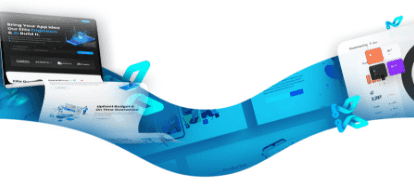
In today's rapidly evolving technological landscape, one term that seems to be on everyone's lips is Artificial Intelligence (AI). From sci-fi movies to cutting-edge innovations, AI has become a driving force in shaping the future of various industries, including business. But what exactly is AI, and how does it impact the way companies operate? This beginner's guide aims to demystify AI and explore its diverse applications in the business world.
What is Artificial Intelligence?
Artificial Intelligence, commonly abbreviated as AI, refers to the simulation of human intelligence in machines programmed to perform tasks that typically require human cognition. AI systems can analyze data, recognize patterns, learn from experiences, and make decisions with minimal human intervention. Unlike traditional software, AI possesses the ability to adapt and improve its performance over time.
AI can be broadly categorized into two types:
- Narrow AI: Also known as Weak AI, this type of AI is designed to perform specific tasks proficiently. Examples of narrow AI include virtual assistants like Siri and Alexa, recommendation algorithms on streaming platforms, and fraud detection systems in financial institutions.
- General AI: Often referred to as Strong AI, General AI possesses cognitive abilities and understanding like human intelligence. It can handle a wide range of tasks, reason, and apply knowledge in various domains. While General AI remains a theoretical concept, researchers and scientists are continually exploring ways to create such advanced systems.
Applications of AI in Business
AI has become a transformative technology for businesses across the globe. Its integration into various processes and operations has led to improved efficiency, enhanced decision-making, and the creation of new opportunities. Here are some key applications of AI in the business realm:
• Data Analysis and Insights: AI-driven data analytics tools enable companies to process vast amounts of data swiftly. This capability helps them gain valuable insights, identify patterns, and make data-driven decisions, optimizing various aspects of their operations, such as supply chain management and customer behavior analysis.
• Customer Service and Support: Chatbots and virtual assistants have revolutionized customer service by providing instant responses and personalized interactions 24/7. AI-powered chatbots can handle routine queries, freeing up human agents to focus on more complex issues, ultimately improving overall customer satisfaction.
• Predictive Analytics: AI algorithms can forecast future trends and outcomes based on historical data, empowering businesses to anticipate market demands, optimize inventory management, and tailor marketing strategies for higher conversion rates.
• Personalization: AI enables businesses to offer personalized recommendations to customers based on their preferences and past interactions. This level of personalization enhances user experience and fosters brand loyalty.
• Process Automation: Robotic Process Automation (RPA) powered by AI can automate repetitive tasks, such as data entry, invoice processing, and HR workflows, leading to increased efficiency and reduced operational costs.
• Fraud Detection and Security: AI algorithms can detect anomalies and patterns associated with fraudulent activities, safeguarding businesses from potential threats and financial losses.
• Optimized Marketing Campaigns: AI facilitates targeted marketing campaigns by analyzing customer data and behavior, helping businesses tailor their messages to specific audiences and achieve higher conversion rates.
Challenges and Future Prospects
While AI offers tremendous potential, it also comes with certain challenges. Privacy concerns, ethical implications, and the potential displacement of certain job roles due to automation are some of the significant issues that need careful consideration.
Looking ahead, the future of AI in business is undoubtedly promising. As AI technologies continue to advance, we can expect even more sophisticated applications that will revolutionize industries, lead to disruptive innovations, and reshape the way we work and live.
In conclusion, AI is a powerful tool that businesses can leverage to gain a competitive edge in an ever-evolving marketplace. Embracing AI technologies and understanding their potential are essential steps for companies to thrive in the age of digital transformation. By harnessing the capabilities of AI responsibly, businesses can unlock new possibilities, drive growth, and deliver unparalleled value to their customers.


